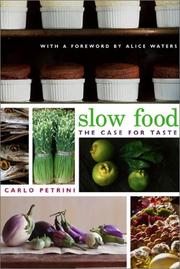| Listing 1 - 10 of 27 | << page >> |
Sort by
|
Book
ISBN: 0691055580 9781400860357 1400860350 9780691055589 0691608520 9780691608525 Year: 2014 Publisher: Princeton, NJ
Abstract | Keywords | Export | Availability | Bookmark
 Loading...
Loading...Choose an application
- Reference Manager
- EndNote
- RefWorks (Direct export to RefWorks)
William McCuaig explores the intellectual turbulence of the late Italian Renaissance through a full examination of the work of one scholar--the humanist Carlo Sigonio (1523-84), whose insistence on critical methods for reconstructing the past revolutionized the study of ancient Roman history and the Italian Middle Ages. An internationally published scholar caught in the political tension of the Counter-Reformation, Sigonio was harshly censored by ecclesiastical authorities in Rome, who opposed his application of critical methods to the history of the post-classical world. McCuaig traces Sigonio's interactions with his opponents and supporters, both academic and clerical, to provide a fascinating and detailed portrait of a cultural milieu. On a general level, this study of Sigonio's works helps explain how the republican ethos of the Italian Renaissance came to an end and how the modern study of ancient history evolved in Italy and France after 1550. Among many topics, this book emphasizes Sigonio's contributions to social history, and points to parallels between the changing social stratifications of ancient Rome and those of early modern Italy. Interdisciplinary in its approach, the work also touches upon the history of education, political theory, the book trade, and historiography.Originally published in 1989.The Princeton Legacy Library uses the latest print-on-demand technology to again make available previously out-of-print books from the distinguished backlist of Princeton University Press. These editions preserve the original texts of these important books while presenting them in durable paperback and hardcover editions. The goal of the Princeton Legacy Library is to vastly increase access to the rich scholarly heritage found in the thousands of books published by Princeton University Press since its founding in 1905.
Historians --- Humanists --- Renaissance --- 098.1 --- 873.4 <45> --- 930.85.44 <45> --- 098.1 Verboden boeken --- Verboden boeken --- 873.4 <45> Humanistisch Latijnse literatuur--Italië --- Humanistisch Latijnse literatuur--Italië --- 930.85.44 <45> Cultuurgeschiedenis: Renaissance--Italië --- Cultuurgeschiedenis: Renaissance--Italië --- Biography --- Sigonio, Carlo, --- Sigone, Carlo, --- Sigonius, Carolus, --- Italy --- Intellectual life --- Historians -- Italy -- Biography. --- Humanists -- Italy -- Biography. --- Italy -- Intellectual life -- 1559-1789. --- Renaissance -- Italy. --- Sigonio, Carlo, -- 1524?-1584. --- Regions & Countries - Europe --- History & Archaeology --- Sigonio, Carolo, --- Sigonio, Carolus, --- Sigonius, Carl, --- Sigonius, Car., --- Sigonius, Carlus, --- Sigonius, --- Lauredanus, Bernardinus, --- Lauredanus, Bernardus,
Book
Year: 1999 Publisher: New York (N.Y.) AMS
Abstract | Keywords | Export | Availability | Bookmark
 Loading...
Loading...Choose an application
- Reference Manager
- EndNote
- RefWorks (Direct export to RefWorks)
Book
Publisher: Princeton University Press
Abstract | Keywords | Export | Availability | Bookmark
 Loading...
Loading...Choose an application
- Reference Manager
- EndNote
- RefWorks (Direct export to RefWorks)
Historians --- Humanists --- Renaissance --- Biography. --- Sigonio, Carlo, --- Italy --- Intellectual life
Book
ISBN: 0691040834 9780691040837 Year: 1991 Publisher: Princeton Princeton university press
Abstract | Keywords | Export | Availability | Bookmark
 Loading...
Loading...Choose an application
- Reference Manager
- EndNote
- RefWorks (Direct export to RefWorks)
Art --- Iconography --- anno 500-1499 --- Art, Medieval --- Themes, motives. --- -Medieval art --- Themes, motives --- -Themes, motives --- Subjects --- Art [Medieval ] --- Art, Medieval - Themes, motives. --- Art, Medieval - Themes, motives
Book
ISBN: 9780231144575 0231144571 Year: 2011 Publisher: New York Columbia university press
Abstract | Keywords | Export | Availability | Bookmark
 Loading...
Loading...Choose an application
- Reference Manager
- EndNote
- RefWorks (Direct export to RefWorks)
Book
ISBN: 0262033836 0262266652 1435665619 0262266660 9780262266659 9781435665613 9780262033831 Year: 2009 Publisher: Cambridge, MA : MIT Press,
Abstract | Keywords | Export | Availability | Bookmark
 Loading...
Loading...Choose an application
- Reference Manager
- EndNote
- RefWorks (Direct export to RefWorks)
A noted economist analyzes the upheavals caused by revolutions in technology, labor, culture, financial markets, and globalization.In this pithy and provocative book, noted economist Daniel Cohen offers his analysis of the global shift to a post-industrial era. If it was once natural to speak of industrial society, Cohen writes, it is more difficult to speak meaningfully of post-industrial "society." The solidarity that once lay at the heart of industrial society no longer exists. The different levels of large industrial enterprises have been systematically disassembled: tasks considered nonessential are assigned to subcontractors; engineers are grouped together in research sites, apart from the workers. Employees are left exposed while shareholders act to protect themselves. Never has the awareness that we all live in the same world been so strong--and never have the social conditions of existence been so unequal. In these wide-ranging reflections, Cohen describes the transformations that signaled the break between the industrial and the post-industrial eras. He links the revolution in information technology to the trend toward flatter hierarchies of workers with multiple skills--and connects the latter to work practices growing out of the culture of the May 1968 protests. Subcontracting and outsourcing have also changed the nature of work, and Cohen succinctly analyzes the new international division of labor, the economic rise of China, India, and the former Soviet Union, and the economic effects of free trade on poor countries. Finally, Cohen examines the fate of the European social model--with its traditional compromise between social justice and economic productivity--in a post-industrial world.
Globalization --- Social history --- Economic aspects. --- Social aspects. --- Europe --- Social policy. --- ECONOMICS/Industrial Organization --- ECONOMICS/Labor Studies --- Social policy --- Economic aspects --- Social aspects --- Gay culture Europe

ISBN: 0231128444 0231128452 9786613627780 128059795X 0231502370 Year: 2001 Publisher: New York (N.Y.): Columbia university press
Abstract | Keywords | Export | Availability | Bookmark
 Loading...
Loading...Choose an application
- Reference Manager
- EndNote
- RefWorks (Direct export to RefWorks)
Take a breath.... Read slowly. How often in the course and crush of our daily lives do we afford ourselves moments to truly relish-to truly be present in-the act of preparing and eating food? For most of us, our enjoyment of food has fallen victim to the frenetic pace of our lives and to our increasing estrangement, in a complex commercial economy, from the natural processes by which food is grown and produced. Packaged, artificial, and unhealthful, fast food is only the most dramatic example of the degradation of food in our lives, and of the deeper threats to our cultural, political, and environmental well-being. In 1986, Carlo Petrini decided to resist the steady march of fast food and all that it represents when he organized a protest against the building of a McDonald's near the Spanish Steps in Rome. Armed with bowls of penne, Petrini and his supporters spawned a phenomenon. Three years later Petrini founded the International Slow Food Movement, renouncing not only fast food but also the overall pace of the "fast life." Issuing a manifesto, the Movement called for the safeguarding of local economies, the preservation of indigenous gastronomic traditions, and the creation of a new kind of ecologically aware consumerism committed to sustainability. On a practical level, it advocates a return to traditional recipes, locally grown foods and wines, and eating as a social event. Today, with a magazine, Web site, and over 75,000 followers organized into local "convivia," or chapters, Slow Food is poised to revolutionize the way Americans shop for groceries, prepare and consume their meals, and think about food. Slow Food not only recalls the origins, first steps, and international expansion of the movement from the perspective of its founder, it is also a powerful expression of the organization's goal of engendering social reform through the transformation of our attitudes about food and eating. As Newsweek described it, the Slow Food movement has now become the basis for an alternative to the American rat race, the inspiration for "a kinder and gentler capitalism." Linger a while then, with the story of what Alice Waters in her Foreword calls "this Delicious Revolution," and rediscover the pleasures of the good life.
#VCV monografie 2004 --- Food habits --- Gastronomy --- Slow food movement --- Social movements --- Eating --- Diet --- Cooking --- Dinners and dining --- Food --- Food customs --- Foodways --- Human beings --- Habit --- Manners and customs --- Nutrition --- Oral habits --- Gastronomy. --- Slow food movement. --- Food habits.

ISBN: 0231132409 9780231132404 Year: 2006 Publisher: New York (N.Y.) Columbia university press
Abstract | Keywords | Export | Availability | Bookmark
 Loading...
Loading...Choose an application
- Reference Manager
- EndNote
- RefWorks (Direct export to RefWorks)
Book
Abstract | Keywords | Export | Availability | Bookmark
 Loading...
Loading...Choose an application
- Reference Manager
- EndNote
- RefWorks (Direct export to RefWorks)
Book history --- books --- manuscripts [documents] --- writing instruments --- anno 500-1499
Book
ISBN: 9780231160469 Year: 2013 Publisher: New York Columbia university press
Abstract | Keywords | Export | Availability | Bookmark
 Loading...
Loading...Choose an application
- Reference Manager
- EndNote
- RefWorks (Direct export to RefWorks)
| Listing 1 - 10 of 27 | << page >> |
Sort by
|

 Search
Search Feedback
Feedback About UniCat
About UniCat  Help
Help News
News